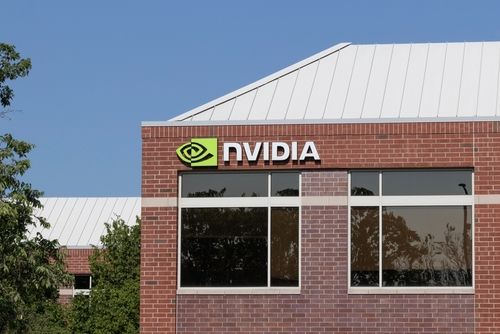Better Artificial Intelligence Stock: Nvidia vs. AMD
- Bitcoin Drops to $70,000. U.S. Government Refuses to Bail Out Market, End of Bull Market or Golden Pit?
- Gold rallies further beyond $5,050 amid flight to safety, dovish Fed expectations
- Bitcoin Bottom Debate: $70,000 or $50,000?
- A Crash After a Surge: Why Silver Lost 40% in a Week?
- Bitcoin Slips Below 75,000 Mark. Will Strategy Change Its Mind and Sell?
- Bitcoin Rout. Bridgewater Founder Dalio Publicly Backs Gold.

Nvidia's (NASDAQ: NVDA) stock surged 2,750% over the past five years as the artificial intelligence (AI) market exploded. Nvidia once generated most of its sales from gaming GPUs for PCs, but the rise of generative AI platforms drove more companies to buy its high-end data center GPUs -- which are used to process complex AI tasks more efficiently than stand-alone CPUs.
Nvidia's early-mover advantage made it a simple way to profit from the secular expansion of the booming AI market, but some investors might be wondering if the hot chipmaker will run out of steam. Could AMD (NASDAQ: AMD), which generated a more modest gain of 380% over the past five years, represent a smarter way to profit from the AI market's growth?

Image source: Getty Images.
The differences and similarities between Nvidia and AMD
Nvidia and AMD are both fabless chipmakers that outsource their production to third-party foundries like Taiwan Semiconductor Manufacturing Company, but they operate different business models. Nvidia generates most of its revenue from discrete GPUs, and it relied on the data center market for a whopping 87% of its revenues in its most recent quarter. The rest of its revenue mainly came from the gaming, professional visualization, auto, and OEM markets.
AMD sells x86 CPUs for PCs and servers, discrete GPUs, and APUs, which merge a CPU and GPU together in a single package. It also sells programmable chips through Xilinx, which it acquired in 2022. In its latest quarter, AMD generated 48% of its revenue from its data center segment, which sells its Instinct GPUs and Epyc CPUs.
Nvidia controlled 88% of the discrete GPU market at the beginning of this year, according to JPR, while AMD held the remaining 12%. TechInsights estimates that Nvidia controlled a whopping 98% of the data center GPU market last year.
AMD is also an underdog in the x86 CPU market compared to Intel. According to PassMark Software, AMD currently controls 36% of that market while Intel holds a 61% share. However, AMD has been gaining ground against Intel over the past eight years as its larger competitor grappled with persistent chip shortages and delays.
In the GPU market, Nvidia's main strategy has been to sell pricier but more power-efficient chips than AMD. AMD usually sells cheaper but less power-efficient chips that can offer comparable performance to Nvidia's chips. That's why Nvidia's H100 GPUs currently cost roughly four times more than AMD's comparable MI300X Instinct GPUs.
Which chipmaker is growing faster?
In the past, Nvidia and AMD relied heavily on the cyclical PC market. However, the rapid AI-driven expansion of Nvidia's data center business reduced its exposure to the PC market -- which slowed down over the past two years as it lapped its stay-at-home growth spurt during the pandemic. AMD, which still relies heavily on the PC market, faced more headwinds.
From fiscal 2024 to fiscal 2027 (which ends in January 2027), analysts expect Nvidia's revenue and earnings per share (EPS) to grow at a compound annual growth rate (CAGR) of 51% and 56%, respectively, as the market's demand for its data center chips continues to outstrip its available supply. Nvidia's data center chips are pricier than AMD's chips, but its focus on power efficiency still makes it the more compelling choice for data center operators, which are consuming massive amounts of power.
From 2023 to 2026, analysts expect AMD's revenue to increase at a CAGR of 20% as the PC market stabilizes and it expands its data center CPU and GPU business. But on the bottom line, they expect its EPS to soar at a CAGR of 102% as it sells a higher mix of higher-margin chips. Economies of scale should also kick in across AMD's data center business as it bundles together its Epyc CPUs, Instinct GPUs, and Xilinx's programmable chips.
Which stock is the better value?
Neither of these chip stocks is a screaming bargain right now. Nvidia trades at 38 times next year's estimated earnings, while AMD has a higher forward multiple of 44. Yet Nvidia looks more reasonably valued relative to its long-term growth potential than AMD. Nvidia should remain the top seller of picks and shovels for the AI gold rush for the foreseeable future, and it has a much simpler business model than AMD. AMD remains an underdog in both the GPU and CPU markets, and its exposure to the cyclical PC market could offset its hard-won gains in the AI market.
Nvidia and AMD are both better investments in the semiconductor sector than Intel, but I think Nvidia is still a stronger bet on the expanding AI market than AMD. Nvidia is growing faster, it's more focused on the data center market, and it will likely remain the top choice for companies that want to upgrade their AI infrastructure to support the latest AI applications.
Read more
* The content presented above, whether from a third party or not, is considered as general advice only. This article should not be construed as containing investment advice, investment recommendations, an offer of or solicitation for any transactions in financial instruments.







